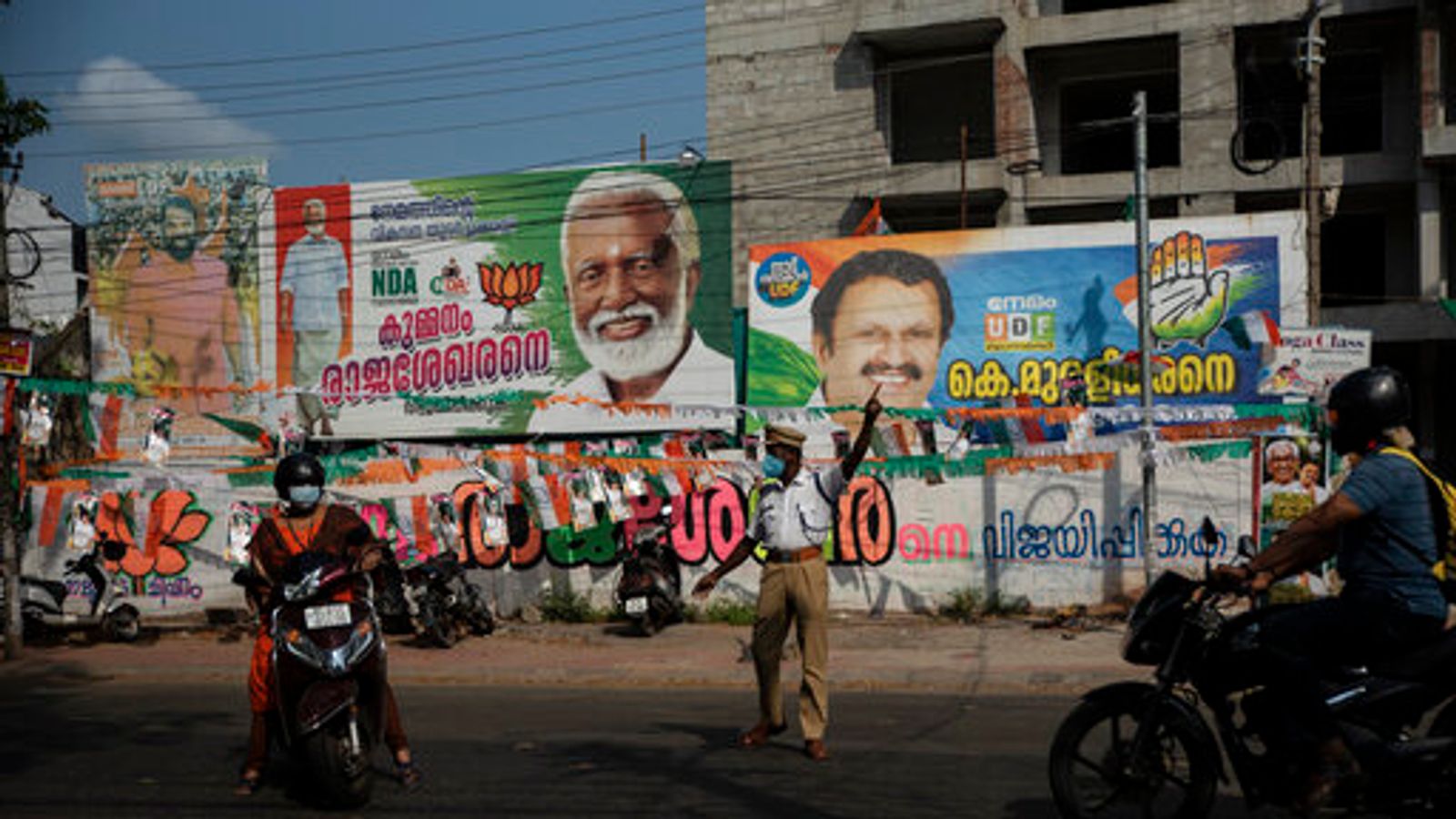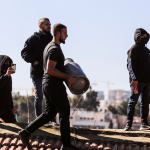New cases of COVID-19 in India have surged passed 100,000 a day – the highest total of daily cases recorded in the country since the pandemic began.
More than 103,790 new cases were recorded on Sunday, taking the total number of coronavirus cases in India to over 12.5 million, second only to the United States and Brazil.
Live COVID updates from the UK and around the world
With 477 deaths recorded in the same period, the COVID-19 related death toll stands at 165,132, the fourth highest in the world.
After relatively easier winter months where the number of cases had fallen to just a few thousand per day, the country is now in the grip of a second wave.
Dr Randeep Guleria, a key member of India’s pandemic task force said: “The new variants which is more infectious along with the old one and then the lack of appropriate COVID-19 behaviour of people, that is of not wearing masks, or keeping social distancing and mingling is the cause of this sharp spike.”
The extraordinary rise of the cases in the last few days has alarmed the government and scientific community, prompting Prime Minister Narendra Modi to hold a high level meeting of all concerned ministries and officers of the COVID-19 task force.
In a tweet, the prime minister said he “reiterated the importance of the five fold strategy of testing, tracing, treatment, COVID-appropriate behaviour, and vaccination as an effective way to fight the global pandemic”.
He also directed all states to take necessary steps and impose the required restrictions to contain the outbreak.
Under Mr Modi’s direction, teams from the federal government consisting of health specialists and clinicians have been sent to some states.
The western state of Maharashtra, with an estimated population of about 123 million people – almost twice that of Britain – had its highest single day jump of 57,704 cases.
To curb the wave, the state’s government has put in a number of restrictions which will begin on Monday and last for the rest of April, including a lockdown during weekdays from 8pm until 7am, with a complete lockdown during weekends.
Only people involved in essential services would be allowed to move around and work. All markets except essential shops will remain shut. Schools, colleges, educational institutions, malls, spas, gymnasiums and restaurants will remain closed.
In the district of Nagpur in Maharashtra, there is now a shortage of Intensive Care Unit beds in hospitals. The district’s administration has ordered its only oxygen supplier to reserve its entire production for medical purpose only.
Videos on social media showed COVID-19 patients sharing beds at the Government Medical College Hospital in Nagpur.
Dr Avinash Gawande, medical superintendent, told reporters: “We cannot keep patients waiting, it will affect their oxygen levels. If 40 patients come at a time then it is difficult to shift them to the wards at the same time, so it takes a bit of time. We provide oxygen support first and then shift them to the wards.”
Other states like Punjab, Karnataka and Chhattisgarh, which have seen a large number of cases, have also put restrictions in place.
Dr VK Paul, a core member of the government’s COVID-19 task force, said: “The situation is turning from bad to worse. We are facing an increasingly severe and intense situation, more so in some districts.
“But the whole country is potentially at risk and therefore all efforts to contain and save lives should be taken,” Dr Paul added.
Please use Chrome browser for a more accessible video player
The country’s vaccination rollout, which began on 16 January, has been criticised for its slow start.
Even though it has picked up pace recently, only 0.7 % of Indians have had both shots while less than 5% of the population, which consists of 1.3 billion people, have had at least one dose.
The country is in the middle of elections in five state assemblies.
The prime minister, cabinet ministers, state chief ministers and leaders of all parties have been conducting large political rallies, road shows and canvassing with hundreds of thousands in attendance. All precautions and social distancing norms have been thrown to the wind.
At the same time, one of the largest congregation of pilgrims have started converging for the month long Maha Kumbh in Haridwar, Uttarakhand from 1 April.
According to the organisers, this once-in-12-years festival is estimated to attract about 150 million pilgrims over the next 30 days.
Dr Guleria has a stark warning: “Should we allow the disease to spread, if we do then the health care system will get burdened. We must reduce the number of cases by means of containment zones, lockdowns and COVID-19 appropriate behaviour.”






















